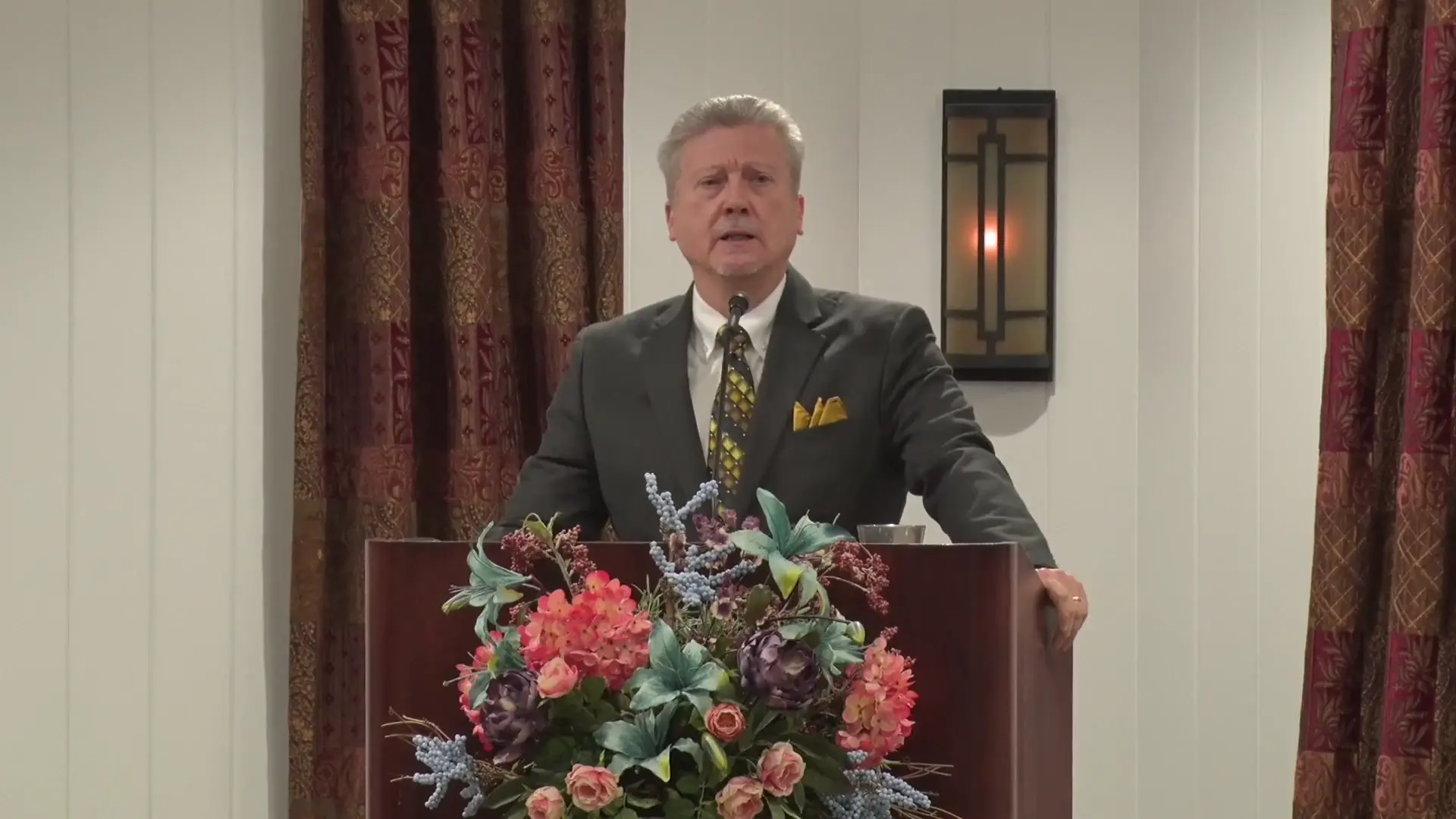Filter by Categories
John (Part Twenty-Eight)
Sermon/Bible Study by John W. RitenbaughIn the Book of John, the significance of the eight signs is highlighted as a central theme, pointing to a deeper purpose in the narrative. These signs are not merely miracles but are intended as indicators, giving direction and guiding belief. They serve to show the way, urging readers to make a choice about faith. As noted in John 12:37, despite Jesus performing many signs, most who witnessed them did not choose to believe in Him. The purpose of documenting these signs, as stated in John 20:31, is to foster belief that Jesus is the Christ, and through believing, to attain life. The question remains whether the Book of John was written to awaken faith for the first time or to revive a faith that was already present but waning. It appears to serve both purposes, primarily aiming to rekindle a latent faith among those who had lost their initial zeal, while also providing a foundation for new believers. Thus, the signs are integral to the book's intent, encouraging a decision to believe and participate in the continuing process of divine life that Jesus represents.
John (Part Nine)
Sermon/Bible Study by John W. RitenbaughIn the Book of John, eight signs are highlighted as significant acts performed by Jesus Christ, each serving a distinct purpose. These signs are not merely miracles but are described as indicators that inform, direct, advertise, point, and give insight into deeper truths. They reveal how God reacts in certain situations and clearly demonstrate His will. Among these, the second sign is noted as a healing, specifically showing that it is His will to heal those who trust Him. This particular sign involved a nobleman, a high official in the Roman government, who demonstrated profound faith and humility. Despite Jesus Christ's initial challenging response, the nobleman's earnest desire and trust led to the healing of his son, affirming that He will heal those who believe. This act not only impacted the nobleman but also led his entire household to believe, illustrating the broader influence of such signs.
The Miracles of Jesus Christ: Healing a Man Born Blind (Part One)
Bible Study by Martin G. CollinsOnly John records Jesus' healing of the man born blind, which shows Christ calling a people for Himself despite the efforts of the Jewish leaders to deter Him.
The Miracles of Jesus Christ: Water Into Wine (Part One)
Bible Study by Martin G. CollinsJesus' first miracle, turning water into wine, reveals principles of the nature of Jesus' miraculous power and God's purpose in performing such signs.

John's Feeding of the 5,000
Sermon/Bible Study by Richard T. RitenbaughThe only miracle recorded in all four Gospels is the feeding of the 5,000, a profound sign that Jesus Christ exclusively is the Bread of Life.
John (Part One)
Sermon/Bible Study by John W. RitenbaughJohn presents Jesus, not as a phantom emanation, but as the reality, transcending the shadows represented by the temporal physical life.
Born Again (Part 3)
Sermon by John W. Ritenbaugh (1932-2023)We have been adopted into the family of God and have become members of God's Kingdom. The Kingdom is here in the same way the church is a spiritual entity.
John (Part Four)
Sermon/Bible Study by John W. RitenbaughThe apostle John has provided at least eight separate forms of witness, establishing the veracity of Jesus Christ's identity as God in the flesh.
Holy Days, Signs, and Names
Sermonette by David C. GrabbeThe time identified with the Feast of Trumpets will be the darkest time of the church and the world, a time Christ will need to cut short Jacob's trouble.
Belief and the Firstfruits (Part Two)
CGG Weekly by David C. GrabbeJesus said, 'Believe in Me,' and hundreds of millions have said, 'I believe.' But true belief is impossible until a person has been appointed to eternal life.
Why 153 Fish? (Part One)
CGG Weekly by David C. GrabbeWhy did Jesus provide exactly 153 fish? Apparently, the number stuck in John's mind for decades. This number must hold some significance, but what is it?
The Miracles of Jesus Christ: Healing a Nobleman's Son
Bible Study by Martin G. CollinsThe healing of the nobleman's son is thought to be Jesus' first-recorded miracle of healing. It illustrates His ability and willingness to heal.
Why 153?
Sermonette by David C. GrabbeThe first sign in the book of John corrected the physical need for wine; the eighth sign of 153 fish corrected a spiritual need on the part of God's people.
My Hour Has Not Yet Come
Feast of Tabernacles Sermon by Mark SchindlerJesus' response to His mother at the wedding—'My hour has not yet come'—was not disrespect but perhaps a challenge to attach real faith with mere knowledge.

God Meant it for Good
Sermon by Martin G. CollinsIf one does good, following God's instructions, persecution is automatically promised as a consequence, just as Christ paid with His life for His good works.
The Miracles of Jesus Christ: The Resurrection of Lazarus (Part Two)
Bible Study by Martin G. CollinsJesus' resurrection of His friend Lazarus from the dead proved to be the final straw for the Jews who were trying to kill Him.
The Miracles of Jesus Christ: Healing a Cripple by a Pool (Part One)
Bible Study by Martin G. CollinsJohn chose to highlight the healing of a crippled man at the Pool of Bethesda. The pool, the man healed, and Christ's curious question are all significant.
Breakfast by the Sea (Part One)
CGG Weekly by David C. GrabbeJohn 21 contains a strong lesson about our part of our Father's business. It begins with a significant miracle, the eighth sign found in the book of John.
What Does God Really Want? (Part 3)
Sermon by John W. RitenbaughThe Good Samaritan parable teaches that unless one practices doing good rather than just knowing good, his faith will be severely compromised.